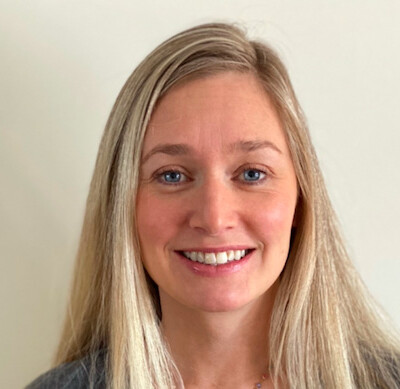Our Volunteers

Kastine Coleman
Meet Kastine Coleman, a member of our Board of Directors
Kastine grew up in Corner Brook, NL, and currently lives there raising her three young children. She teaches yoga classes online with her mother through her yoga studio—but come spring “I focus a lot on fishing-related muscles”. She also manages several websites and is co-host of an upcoming tv/web show called Fish Hunt Feast.
She was introduced to fly fishing by her father when quite young.
“My sister, two brothers and I would tag along with him to the salmon rivers. We would watch him from the shore and take a cast every now and then. When I was 10 years old the local conservation group SPAWN came to our classroom and taught about the life cycle of salmon, visiting throughout the year as the salmon matured.”
From that moment salmon conservation became a passion. “On seeing a fish I would immediately attempt to determine the sex, and I would look for salmon par anytime I was near a body of water.”
She had an uncle who would send salmon flies in the mail, and when he died she inherited his vise. “I started tying my own flies but would never fish with them—they were pretty gnarly looking!”
Twenty-five years later she has learned to tie properly and in the past two years every fish caught has been on a fly she tied. But she didn’t stop there.
“In 2019 I passed my Fly Fishers International exam and became a certified fly casting instructor. This was a huge milestone for me, as I had been working towards it for two years. I started teaching lessons with my focus being mainly on women and children. The reason for this is because I couldn’t ever find another female angler to go fishing with. Each time I met someone in the grocery store or on the street they would tell me how they always wanted to learn fly fishing but had never gotten the chance.”
She also supposed that if she could teach her children the basics at a young age they may grow into the sport knowing the proper techniques and more importantly, the proper way to handle and release a fish.
“I enjoy the challenges of teaching all levels of anglers throughout the year. When the salmon season is open I offer guided fishing with my partner Terry Byrne and include an on-water lesson if the angler is open to it.
”We began hosting experience-based salmon fishing trips (women only, and also co-ed) where a fishing trip of 1-7 days is coupled with beautiful meals, wine pairing, casting lessons, guided fishing and optional yoga. What isn’t there to love? These trips have been a huge success and we are setting up dates for 2021 (covid-pending of course).”
Last year the pair started a tv/web show called Fish Hunt Feast (www.FishHuntFeast.com). They film fishing and hunting adventures and showcase the best Atlantic Salmon fishing and moose hunting in Newfoundland & Labrador.
“Our goal is to inspire others to become involved in the sport, to show our passion for conservation, and to educate our viewers to the best of our ability. We show clips of casting technique, instruction on how to read certain bodies of water, some fly tying, foraging and, of course, lots of exciting takes on dry fly! During select episodes we also have guest fishermen, hunters and chefs who bring our backyard cooking to the next level.”
Kastine is a volunteer board member of the local Salmon Preservation Association (www.SPAWN1.ca), and an ambassador for Keep Fish Wet (www.keepfishwet.org), a science-based conservation group that helps anglers improve the outcome for each fish they release.
She acknowledges things aren’t good in the Atlantic Salmon world. “Stocks are declining at an alarming rate and there are so many factors contributing to this decline—aquaculture, sea temperatures, predation, global warming, poaching, to name a few. We’ve all got to be better to give the fish a fighting chance at survival.”
But while Atlantic Salmon stocks are in decline around the globe she still has hope things can recover.
“Atlantic Salmon, as we all know, are a very resilient species. With solid science-based conservation decisions by Federal and Provincial Governments, respected salmon conservation groups shining a light on provincial and river specific threats, we still have an opportunity. Governments both federally and provincially need to listen and take steps to ensure this species doesn’t disappear. We need more science on smolt survival at sea and general survival rates during this growing phase of Salmon development. We must become better stewards of land and sea.
“Thankfully volunteer groups like the FCAS have stepped up to sponsor local groups in their quest to make sure of the survival of the species. I am proud to be part of this organization and love seeing the proposals coming through from groups and people that have invested their time and energy into saving the Atlantic Salmon”.
